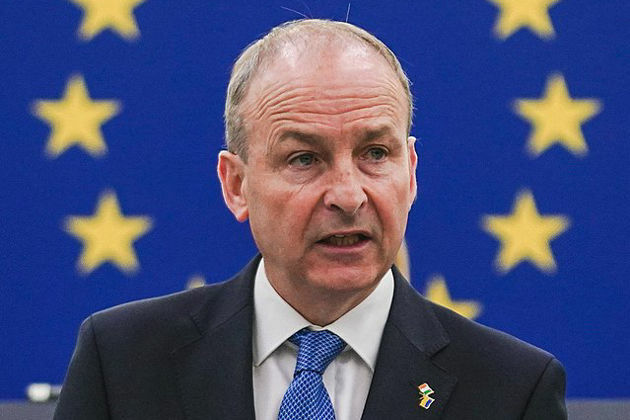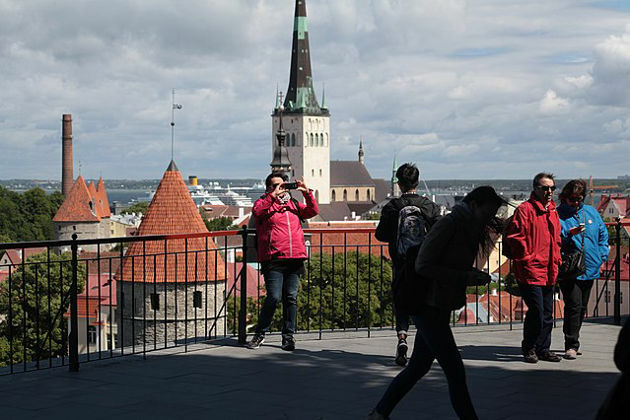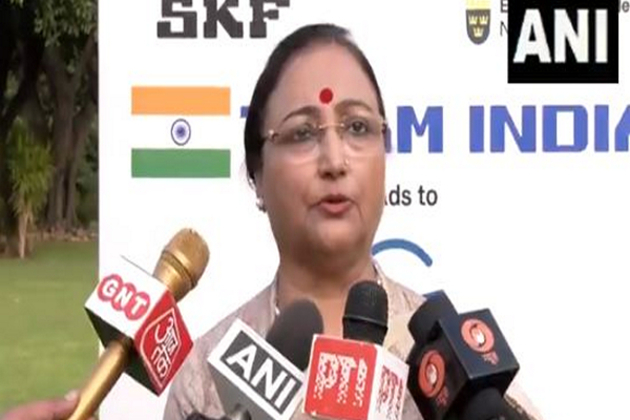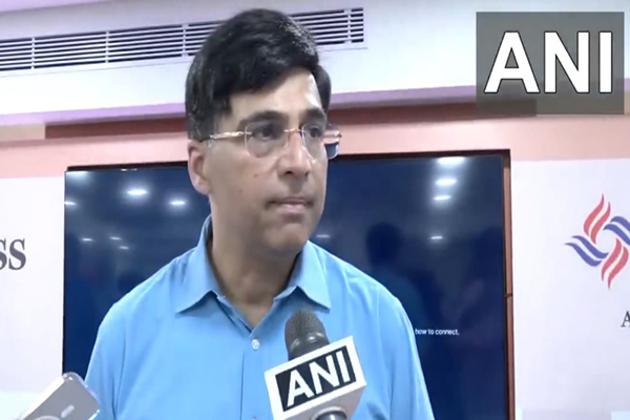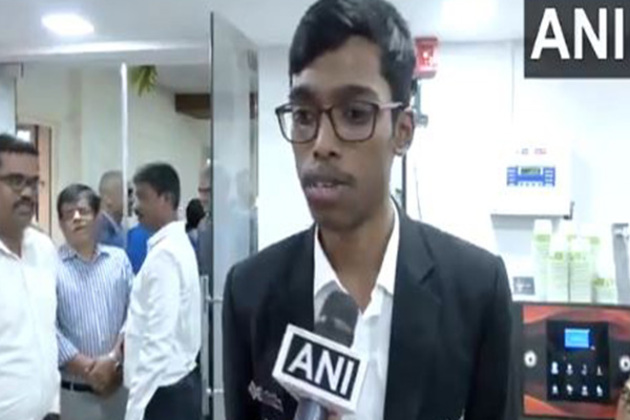Three reasons a weak pound is bad news for the environment
The Conversation
01 Oct 2022, 00:09 GMT+10

The day before new UK chancellor Kwasi Kwarteng's mini-budget plan for economic growth, a pound would buy you about $1.13. After financial markets rejected the plan, the pound suddenly sunk to around $1.07. Though it has since rallied thanks to major intervention from the Bank of England, the currency remains volatile and far below its value earlier this year.
A lot has been written about how this will affect people's incomes, the housing market or overall political and economic conditions. But we want to look at why the weak pound is bad news for the UK's natural environment and its ability to hit climate targets.
1. The low-carbon economy just became a lot more expensive
The fall in sterling's value partly signals a loss in confidence in the value of UK assets following the unfunded tax commitments contained in the mini-budget. The government's aim to achieve net zero by 2050 requires substantial public and private investment in energy technologies such as solar and wind as well as carbon storage, insulation and electric cars.
But the loss in investor confidence threatens to derail these investments, because firms may be unwilling to commit the substantial budgets required in an uncertain economic environment. The cost of these investments may also rise as a result of the falling pound because many of the materials and inputs needed for these technologies, such as batteries, are imported and a falling pound increases their prices.
2. High interest rates may rule out large investment
To support the pound and to control inflation, interest rates are expected to rise further. The UK is already experiencing record levels of inflation, fuelled by pandemic-related spending and Russia's war on Ukraine. Rising consumer prices developed into a full-blown cost of living crisis, with fuel and food poverty, financial hardship and the collapse of businesses looming large on this winter's horizon.
While the anticipated increase in interest rates might ease the cost of living crisis, it also increases the cost of government borrowing at a time when we rapidly need to increase low-carbon investment for net zero by 2050. The government's official climate change advisory committee estimates that an additional Pound 4 billion to Pound 6 billion of annual public spending will be needed by 2030.
Some of this money should be raised through carbon taxes. But in reality, at least for as long as the cost of living crisis is ongoing, if the government is serious about green investment it will have to borrow.
Rising interest rates will push up the cost of borrowing relentlessly and present a tough political choice that seemingly pits the environment against economic recovery. As any future incoming government will inherit these same rates, a falling pound threatens to make it much harder to take large-scale, rapid environmental action.
3. Imports will become pricier
In addition to increased supply prices for firms and rising borrowing costs, it will lead to a significant rise in import prices for consumers. Given the UK's reliance on imports, this is likely to affect prices for food, clothing and manufactured goods.
At the consumer level, this will immediately impact marginal spending as necessary expenditures (housing, energy, basic food and so on) lower the budget available for products such as eco-friendly cleaning products, organic foods or ethically made clothes. Buying "greener" products typically cost a family of four around Pound 2,000 a year.
Instead, people may have to rely on cheaper goods that also come with larger greenhouse gas footprints and wider impacts on the environment through pollution and increased waste. See this calculator for direct comparisons.
Of course, some spending changes will be positive for the environment, for example if people use their cars less or take fewer holidays abroad. However, high-income individuals who will benefit the most from the mini-budget tax cuts will be less affected by the falling pound and they tend to fly more, buy more things, and have multiple cars and bigger homes to heat.
This raises profound questions about inequality and injustice in UK society. Alongside increased fuel poverty and foodbank use, we will see an uptick in the purchasing power of the wealthiest.
What's next
Interest rate rises increase the cost of servicing government debt as well as the cost of new borrowing. One estimate says that the combined cost to government of the new tax cuts and higher cost of borrowing is around Pound 250 billion. This substantial loss in government income reduces the budget available for climate change mitigation and improvements to infrastructure.
The government's growth plan also seems to be based on an increased use of fossil fuels through technologies such as fracking. Given the scant evidence for absolutely decoupling economic growth from resource use, the opposition's "green growth" proposal is also unlikely to decarbonise at the rate required to get to net zero by 2050 and avert catastrophic climate change.
Therefore, rather than increasing the energy and materials going into the economy for the sake of GDP growth, we would argue the UK needs an economic reorientation that questions the need of growth for its own sake and orients it instead towards social equality and ecological sustainability.
Authors: Katharina Richter - Lecturer in Climate, Politics and Society, University of Bristol | Alix Dietzel - Senior Lecturer in Climate Justice, University of Bristol | Alvin Birdi - Professor of Economics Education, University of Bristol 
 Share
Share
 Tweet
Tweet
 Share
Share
 Flip
Flip
 Email
Email
Watch latest videos
Subscribe and Follow
Get a daily dose of Denmark Sun news through our daily email, its complimentary and keeps you fully up to date with world and business news as well.
News RELEASES
Publish news of your business, community or sports group, personnel appointments, major event and more by submitting a news release to Denmark Sun.
More InformationEurope
SectionIrish Rail faces 26,000-euro bill after graffiti spree by man
DUBLIN, Ireland: Irish Rail incurred over 26,000 euros in damages due to a series of graffiti incidents carried out by a 24-year-old...
Warsaw responds to migration pressure with new border controls
SLUBICE, Poland: Poland reinstated border controls with Germany and Lithuania on July 7, following Germany's earlier reintroduction...
Ireland’s PM ‘hopeful’ of EU-US tariff deal before July 9 deadline
DUBLIN, Ireland: Taoiseach Micheál Martin has expressed cautious optimism that the European Union and the United States can strike...
Fans perform WWII-era Fascist salute at Marko Perković’s mega concert
ZAGREB, Croatia: A massive concert by popular Croatian singer Marko Perković, known by his stage name Thompson, has drawn widespread...
Ireland’s citizens undeterred as Europe swelters in record heat
DUBLIN, Ireland: Despite extreme heat gripping much of mainland Europe, Irish holidaymakers are pressing ahead with their travel plans,...
Beijing hits back at EU with medical device import curbs
HONG KONG: China has fired back at the European Union in an escalating trade dispute by imposing new restrictions on medical device...
Scandinavia
SectionBeijing hits back at EU with medical device import curbs
HONG KONG: China has fired back at the European Union in an escalating trade dispute by imposing new restrictions on medical device...
Weapons pause by Trump signals shift away from foreign wars
WASHINGTON, D.C.: President Donald Trump is drawing praise from his core supporters after halting key arms shipments to Ukraine, a...
Special Olympics Bharat president Mallika Nadda speaks on India's participation in Gothia Cup 2025
New Delhi [India], July 10 (ANI): Special Olympics Bharat president Dr Mallika Nadda spoke on India's participation in the Gothia Cup...
"I hope chess players from all over the country will be able to take advantage': Viswanathan Anand on Chola Chess Initiative
Chennai (Tamil Nadu), [India], July 10 (ANI): Five-time World Chess Champion Viswanathan Anand has praised the Chola Chess Initiative...
R Praggnanandhaa hails 'Chola Chess Initiative', speaks about sport's popularity
Chennai (Tamil Nadu) [India], July 9 (ANI): Indian chess sensation R Praggnanandhaa on Wednesday lauded the Chola Chess initiative,...
Helsinki Cup: Minerva registered its fourth win, creating history by winning the match 9-0
New Delhi [India], July 9 (ANI): Minerva Academy FC's victory campaign continued on the second day in the Helsinki Cup 2025, and the...



